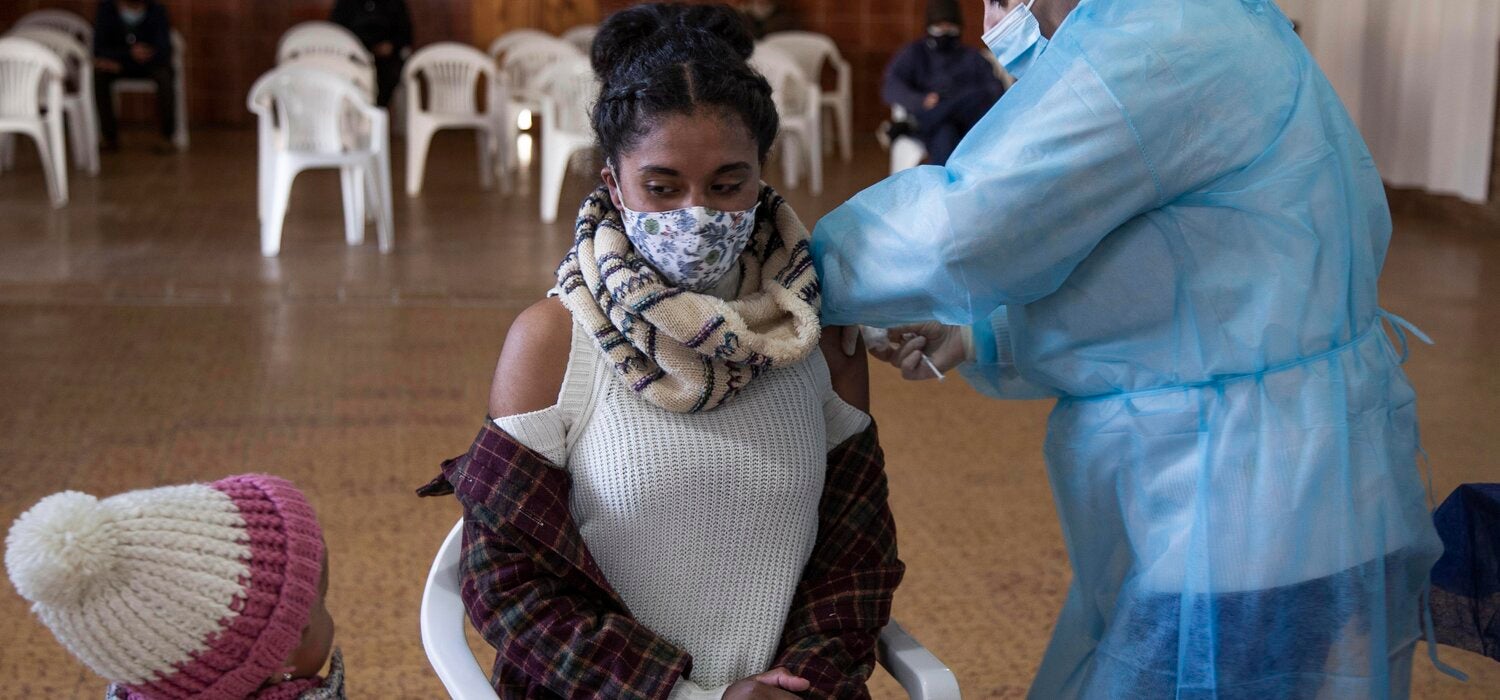Uruguay, July 2021 (PAHO) Before the coronavirus hit Uruguay, walking around with a face mask, not greeting others with a kiss, and not sharing one's tea (mate) was unthinkable. It was also rare to see a social club in a town in the interior part of the country turn into a vaccination station one morning and a freezer serve as a a desk.
In the new normal––or at least to get back to the way things were––people were coming by horseback, motorcycle, bicycle, or car to the Cerro Colorado Social Club in the department of Florida, to be vaccinated against COVID-19.
The following three stories depict the desire to vaccinate people or to get vaccinated, which is expanding throughout Uruguay, where 50% of the population has been fully inoculated four months after the COVID-19 vaccination campaign began.

